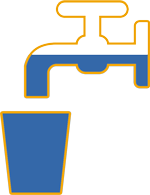Back to all articles
Our Summer Interns are Amazing, and Pursuing Interesting Projects…
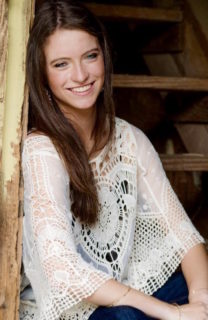
Kensey Dahlquist: I am currently working on the SARE 2018 trials at Rich Earth. We are investigating the best application methods for UDF by measuring Ammonia volatilization from ground applications on a couple of local farms. We are also looking at factors such as soil moisture, weather, windspeed, and urine treatments to minimize Nitrogen loss.
A lot of my time at Rich Earth has been dedicated to setting up these trials and titrating them in our lab, but the interns have also had a lot of opportunities to table at community events. Outside of work, I have enjoyed hiking, kayaking, contra dancing, and exploring the area with the other interns!
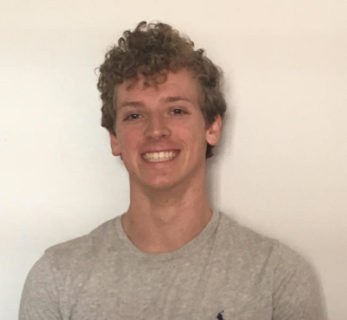 Morgan Martinez: I have been working on the freeze concentration project for the greater part of the summer. This is to separate the water and nutrient components of water in an efficient manner. The urine solution becomes more concentrated and more nutrients will be available in an easier to transport and quicker to obtain process.
Morgan Martinez: I have been working on the freeze concentration project for the greater part of the summer. This is to separate the water and nutrient components of water in an efficient manner. The urine solution becomes more concentrated and more nutrients will be available in an easier to transport and quicker to obtain process.
Additionally, I have worked on two data analysis projects. For the first project, I wrote a code that will be used for quicker data collection to help reduce the time spent searching through files and collecting time-based data. There is also a graphing function that will also be used to reduce time spent making visual representations of the data collected. The second project was a variable analysis of the urine pasteurizer to help optimize the flow rate in and out of the pasteurizer given certain pump and pressure specifications.
Another project I have been working on is making a functional urine counter to be set up at the depot. Continuing form a project from past years, I have helped wire and code for a panel board to actively measure the flow rate of urine pumped out of cubies into, convert the flow into gallons, and accordingly show the right numbers to help create a more accurate measure of urine collected from donors.
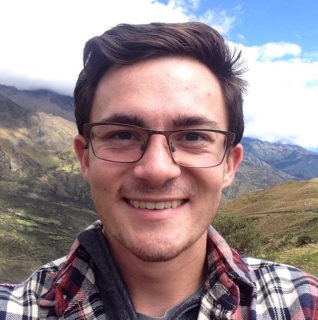 Benson Colella: I have enjoyed working on electronics and construction projects at the Rich Earth Institute. I built an internet-enabled alarm for donor storage tanks and barrels. The device sends us an email when a tank level is high and again when the tank fills. We’ve installed the first alarm in the research center bathroom and hope to install more in the near future.
Benson Colella: I have enjoyed working on electronics and construction projects at the Rich Earth Institute. I built an internet-enabled alarm for donor storage tanks and barrels. The device sends us an email when a tank level is high and again when the tank fills. We’ve installed the first alarm in the research center bathroom and hope to install more in the near future.
At the Rich Earth institute, we work to remove water from urine to make a fertilizer product that can be more economically transported. I am building a new freeze-concentrator. This special freezer will remove some water from urine as ice. Right now, I am working to gather data from 12 tiny thermometers on the freeze-concentrator so that we can tune its operation for speed and energy efficiency.
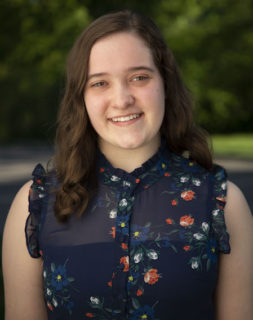 Katie Weitzel: I have been working on creating a reliable way to determine the nitrogen content in urine. The nitrogen in urine can be lost through ammonia volatilization. By creating conditions that encourage volatilization, in an airtight container, I have been able to capture and measure the amount of ammonia in urine. This project gives Rich Earth insight on how much nitrogen is lost from urine that has been stored in different conditions. In addition, I am working with biochar, a type of charcoal used as a soil amendment. Based on the source material, biochar has properties that make it good at adsorbing different chemicals. Using biochar with urine could help decrease the smell of the fertilizer and reduce the amount of nitrogen that is lost during application. In addition to working at the Rich Earth Institute, I have been enjoying everything Vermont has to offer, including contra dancing, maple cream, and beautiful hiking trails.
Katie Weitzel: I have been working on creating a reliable way to determine the nitrogen content in urine. The nitrogen in urine can be lost through ammonia volatilization. By creating conditions that encourage volatilization, in an airtight container, I have been able to capture and measure the amount of ammonia in urine. This project gives Rich Earth insight on how much nitrogen is lost from urine that has been stored in different conditions. In addition, I am working with biochar, a type of charcoal used as a soil amendment. Based on the source material, biochar has properties that make it good at adsorbing different chemicals. Using biochar with urine could help decrease the smell of the fertilizer and reduce the amount of nitrogen that is lost during application. In addition to working at the Rich Earth Institute, I have been enjoying everything Vermont has to offer, including contra dancing, maple cream, and beautiful hiking trails.

